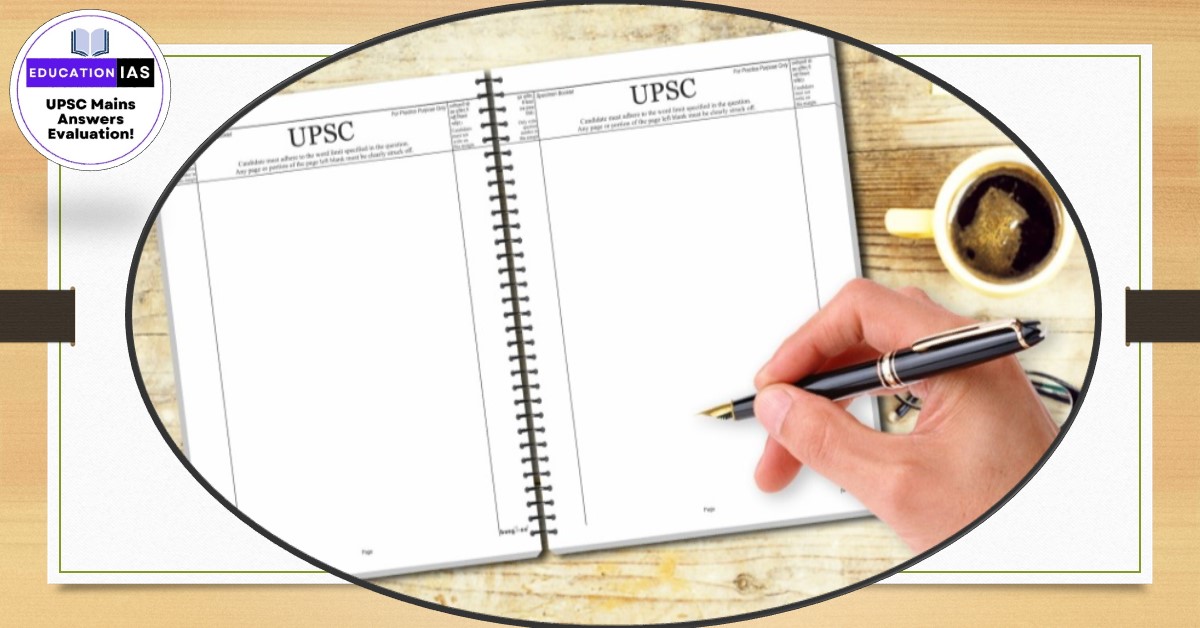Que. Critically examine the significance of the National Food Security Act of 2013 in revamping the Public Distribution System (PDS) in India.
प्रश्न: भारत में सार्वजनिक वितरण प्रणाली (PDS) को सुधारने में राष्ट्रीय खाद्य सुरक्षा अधिनियम 2013 के महत्व का आलोचनात्मक परीक्षण कीजिए।
Structure(i) Introduction: Give a brief introduction of the National Food Security Act (NFSA) 2013 and highlight its objective to revamp the Public Distribution System (PDS) in India. (ii) Main Body: Describe the major reforms undertaken under the National Food Security Act (NFSA) 2013. Also, write about the positive outcomes and challenges faced during implementation. (iii) Conclusion: Summarize NFSA’s contribution to improving the PDS and food security. Reflect on its effectiveness and suggest areas for further improvement to enhance its impact. |
Introduction
The National Food Security Act (NFSA) of 2013 marked a significant overhaul of India’s Public Distribution System (PDS), aimed at addressing inefficiencies like high leakages and corruption. By focusing on improving food security for vulnerable populations, NFSA sought to reform the PDS and ensure more effective food distribution.
Key Reforms Under the Food Security Act
(i) Targeted Distribution: NFSA introduced a targeted approach by categorizing households into Priority Households (PHH) and Antyodaya Anna Yojana (AAY). PHH families are entitled to 5 kg of food grains per person per month, while AAY households receive 35 kg per month. This targeted distribution ensures that the most needy individuals receive adequate food assistance, helping to address food insecurity more effectively.
(ii) Technological Integration: The Act promotes technological solutions like biometric authentication to verify beneficiaries and track food grains. These measures aim to reduce leakages and ensure that food reaches the intended recipients. However, the implementation of technology has faced challenges, including technical issues and exclusions of some beneficiaries, particularly in rural areas with limited technological infrastructure.
(iii) Expansion of Coverage: NFSA significantly expanded the PDS coverage, allowing a larger portion of the population to access subsidized food. This expansion was particularly vital during the COVID-19 pandemic, when the PDS provided crucial support to millions affected by economic disruptions. The broader reach of the PDS under NFSA helps make food security more inclusive.
Impact of the Food Security Act on PDS Operations
(i) Reduction in Leakages: NFSA has led to a reduction in PDS leakages. The NSS Household Consumption Expenditure Survey (HCES) for 2022-23 reported a decrease in leakages to around 22%, reflecting improvements in distribution practices and monitoring due to NFSA reforms.
(ii) Improved Access to Food: The Act has enhanced food access for vulnerable groups, with expanded coverage ensuring that more households receive necessary food grains. The PDS played a crucial role during the COVID-19 lockdowns, supporting individuals through economic challenges.
(iii) Enhanced Accountability: NFSA has improved accountability within the PDS through better monitoring and technology. States like Chhattisgarh and Odisha, which have effectively implemented NFSA reforms, have seen reduced leakages and better operational outcomes.
Challenges and Criticisms
(i) Technological Barriers: Technological integration, particularly Aadhaar-based biometric authentication, has faced issues, including technical problems and inadequate facilities in rural areas. This has led to the exclusion of some eligible beneficiaries.
(ii) Need for Nutritional Diversity: While NFSA has improved food security, it mainly focuses on staple grains. There is a growing need to include nutrient-rich foods like pulses and edible oils to address the full nutritional needs of beneficiaries.
(iii) Ongoing Reforms and Innovations: The PDS is undergoing ongoing reforms, including debates over cash transfers and door-to-door delivery systems. These innovations have sparked controversy regarding their efficiency and feasibility, with some advocating for improvements to the existing PDS framework.
Conclusion
The National Food Security Act of 2013 has notably improved India’s Public Distribution System by increasing coverage, reducing leakages, and enhancing accountability. However, challenges such as technological issues, the need for nutritional diversity, and ongoing reform debates need to be addressed. Continued improvements and commitment will be essential for maximizing the NFSA’s impact on food security.
